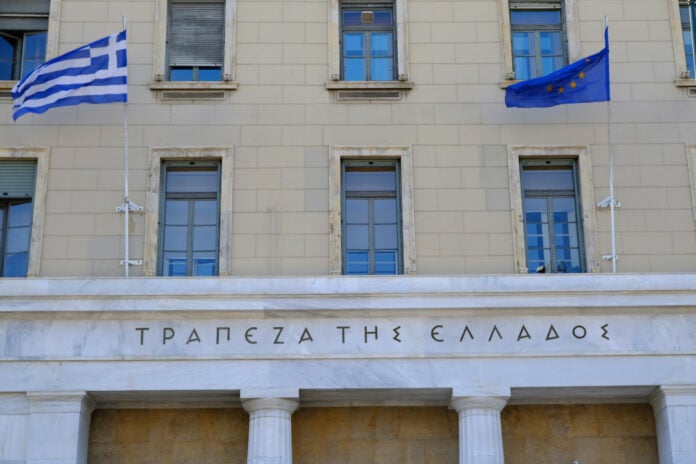Greek current account deficit fell by 3.0 billion euros in the January-February period this year compared with the corresponding period in 2022 to stand at 1.5 billion, the Bank of Greece said on Thursday.
More specifically, the central bank attributed this development chiefly to an improvement in the balance of goods as well as in the secondary income account which was offset to a degree by a worsening in the primary income account and the services balance. A drop in the deficit of the balance of goods is accounted for by a larger increase in exports than in imports. Exports grew by 25.1% at current prices (10.7% at constant prices) and imports increased marginally by 0.3% at current prices (-1.1% at constant prices). Specifically, non-oil exports and imports of goods grew by 11.9% and 0.8%, respectively, at current prices (0.3% and -3.5% at constant prices). A decrease in the services surplus is attributable to a deterioration in the transport balance, which was partly offset by an improvement in the travel and other services balances.
Non-residents’ arrivals grew by 83.5% and the relevant receipts by 76.4% year-on-year. The surplus of the primary income account decreased year-on-year, as a result of higher net interest, dividend and profit payments, which were partly offset by an increase in net receipts from other primary income. The surplus of the secondary income account widened year-on-year, chiefly because the general government balance registered net receipts instead of net payments.
In February, a drop in the deficit of the balance of goods is a combined result of an increase in exports and a decline in imports. Exports grew by 20.2% at current prices (9.1% at constant prices) and imports fell by 4.6% at current prices (-3,3% at constant prices). Specifically, non-oil exports of goods increased by 6.7% at current prices (-3.3% at constant prices) and non-oil imports of goods dropped by 1.3% at current prices (-5.0% at constant prices). An increase in the surplus of the services balance is due to an improvement in the other services balance, as well as in the travel balance, while the transport balance deteriorated. Non-residents’ arrivals rose by 80.6% and the relevant receipts by 80.9% compared with February 2022. The primary income account surplus declined year-on-year, owing to higher net interest, dividend and profit payments. The secondary income account surplus registered a small increase compared with February 2022.
In the January-February 2023 period, under direct investment, residents’ external assets rose by 99 million and residents’ external liabilities, which represent non-residents’ direct investment in Greece, increased by 527.9 million.
At the end of February 2023, Greece’s reserve assets stood at 11.8 billion euros, compared with 13.0 billion at end-February 2022.















